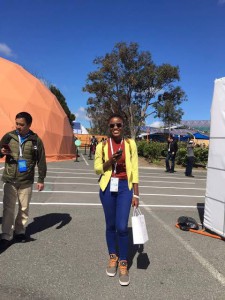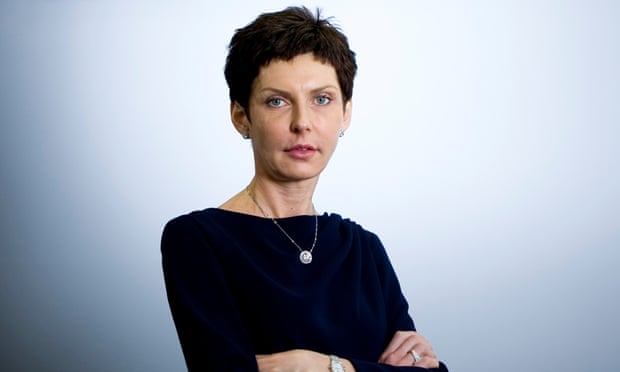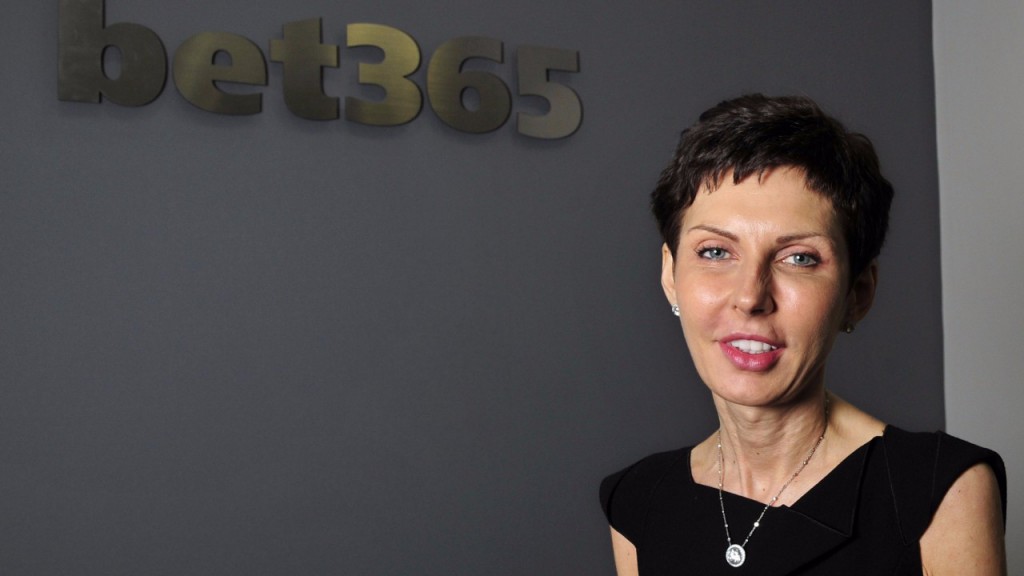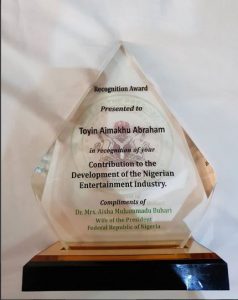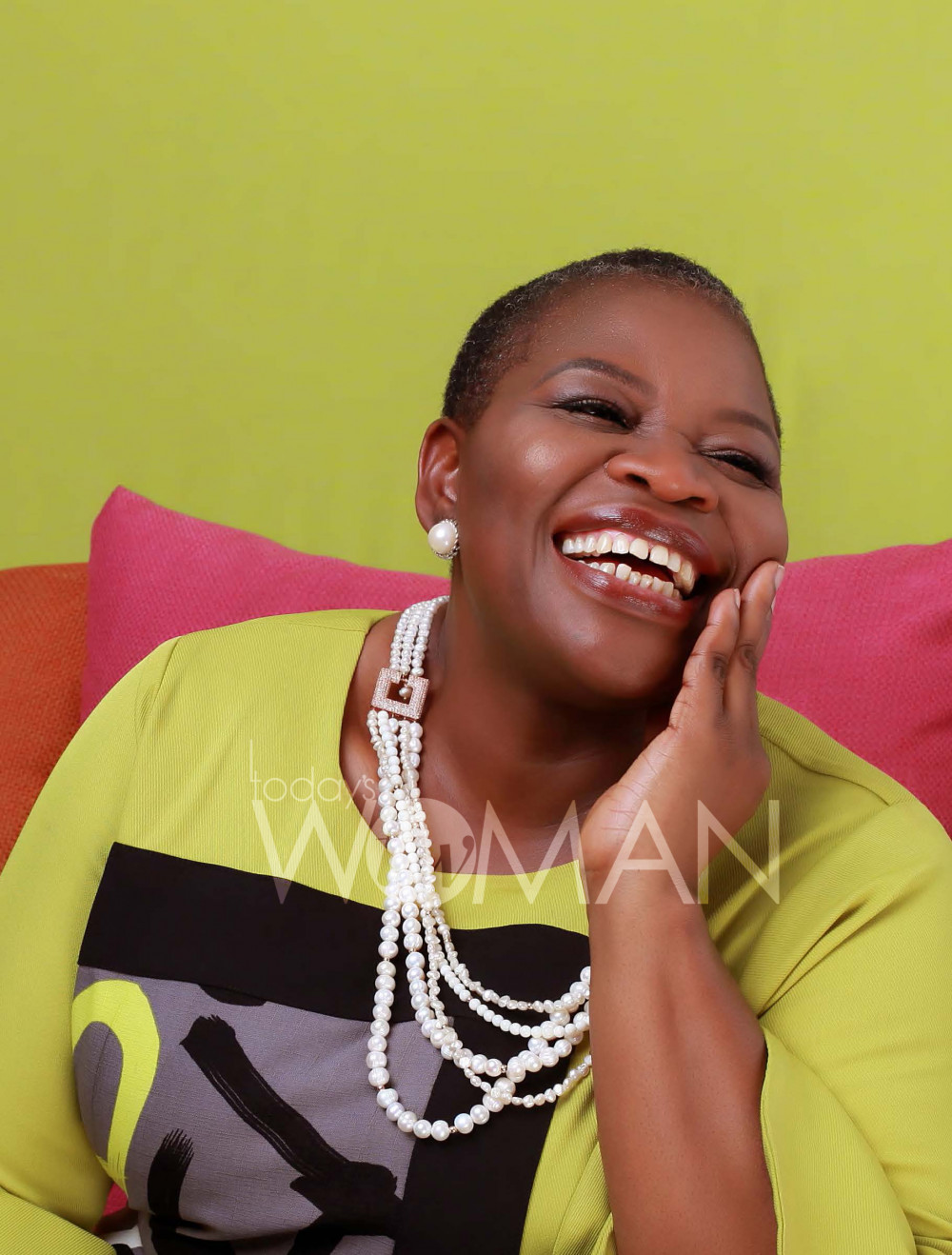The BBC has released its BBC 100 Women list for 2018, which celebrates 100 inspiring and influential women from around the world.
The list includes leaders, trailblazers and everyday heroes from over 60 countries, ranging from age 15 to 94.
Nigerians on the list include:
Abisoye Ajayi-Akinfolarin, the 33-year old Social impact entrepreneur, who is the founder of GirlsCoding, an NGO that teaches girls how to code, design and build websites that help solve problems in their communities. Abisoye is also one of the 10 finalist for the CNN Hero Award for 2018.
Amina J Mohammed, 57 – Deputy secretary general, United Nations, Nigeria.
Amina is a former minister of environment in Nigeria and has previously been a special adviser to UN Secretary General Ban Ki-moon.
Bola Tinubu, 51 – Lawyer, Nigeria.
Bola is a corporate lawyer who established the first free children’s helpline in Nigeria – Cece Yara Foundation
Chidera Eggerue, 23, The UK-based blogger – ‘Slumflower’ is a best-selling author and activist behind the social media movement #saggyboobsmatter, driving new conversations about perceptions of women’s bodies.
Other Africans on the list include:
Fatma Samoura, 56 – Fifa secretary general, Senegal.
Fatma is the first woman and the first African to hold the position of secretary general of Fifa.
Nimco Ali, 35 – Writer and activist, Somaliland
Nimco is an award-winning FGM (female genital mutilation) activist.
Noma Dumezweni, 49 – Actor, eSwatini (formerly known as Swaziland).
Noma is the first woman to play the adult version of Hermione Granger in Harry Potter and The Cursed Child, playing in London’s West End and Broadway, New York.
Shrouk El-Attar, 26 – Electronic design engineer, Egypt. Shrouk is a refugee and full-time engineer, who uses belly dancing to raise awareness and campaign for the rights of the LGBT+ community in Egypt.
Raghda Ezzeldin, 26 – Free-diver, Egypt.
Raghda is a record-breaking free-diver, who descends to extreme depths without breathing apparatus.
Mamitu Gashe, 72 – Senior nurse aide/fistula surgeon, Ethiopia.
Mamitu is now an internationally certified fistula surgeon, after being treated for fistula (an injury which can occur in childbirth) herself.
Thando Hopa, 29 – Model, lawyer, activist, South Africa.
Thando is a diversity and inclusion advocate. Cast in the Pirelli calendar 2018, she is the first person of colour in South Africa to have featured in the publication.
Hindou Oumarou Ibrahim, 35 – Environmentalist and advocate for indigenous people and women, Chad.
Hindou is an indigenous woman of Chad, advocating for the protection of the environment and for the rights of indigenous peoples on an international scale.
Helena Ndume, 58 – Ophthalmologist, Namibia.
Helena has performed sight-restoring surgeries upon 35,000 Namibians, free of charge – many of her patients now call her “Namibia’s miracle doctor”.
Olivette Otele, 48 – Professor in History at Bath Spa University, Cameroon.
Olivette is a historian and memory scholar who works on European colonial history and post-colonial legacies.
Brigitte Sossou Perenyi, 28 – Documentary producer, Ghana.
Brigitte is an award-winning documentary producer, who told her story of being a Trokosi – a practice that sends girls to serve priests in shrines as payment for the “sins” of their family – and being trafficked from Togo to Ghana.
Juliet Sargeant, 53 – Garden designer, Tanzania.
Juliet is a doctor-turned-garden designer working to make “places that feel as good as they look”.
Ruth Medufia, 27 – Metal worker, Ghana.
Ruth is a female welder who lives in an urban slum community and aspires to be a role model for young women in the construction industry.
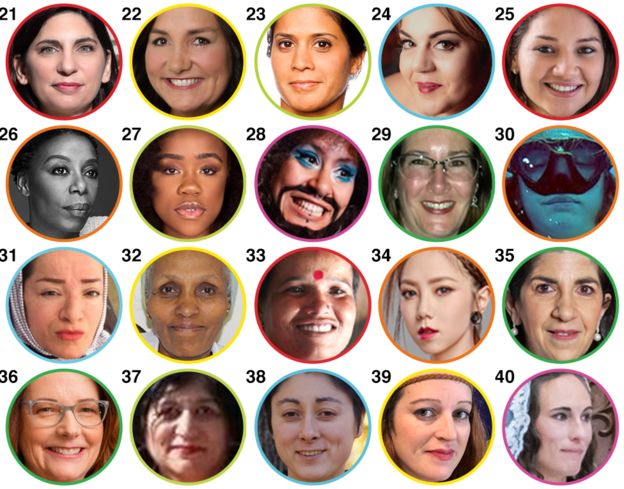
See other names on the list below:
Esraa al-Shafei, 32 – Executive director of not for profit Majal.org., Bahrain.
Esraa has founded a diverse number of digital platforms to give a voice to those under-represented in the Middle East and North Africa.
Svetlana Alekseeva, 18 – Model, Russia.
Svetlana survived a fire that burned almost half her body and now works to help people with scars feel positive about their bodies.
Lizt Alfonso, 51 – Director and choreographer, Cuba.
Lizt has created an internationally recognised fusion dance company which has performed in hundreds of cities across the world.
Isabel Allende, 76 – Author, Peru.
Isabel, who was born in Peru to Chilean parents, is the world’s most widely read Spanish-language author and has sold more than 70 million books in 42 languages.
Boushra Yahya Almutawakel, 49 – Artist, photographer and activist, Yemen.
Boushra is the first female Yemeni professional photographer, whose work has been featured in international publications and acquired by the British Museum.
Alina Anisimova, 19 – Student programmer, Kyrgyzstan.
Alina leads the Kyrgyz Girls’ Space School, which aims to send the country’s first satellite into space.
Frances Arnold, 62 – Professor of chemical engineering, bioengineering and biochemistry, US.
Frances is the recipient of the 2018 Nobel Prize for Chemistry, and her work on enzymes is used in laboratories, making everything from advanced medicines to biofuels and laundry detergents.
Continue reading at https://www.bellanaija.com/2018/11/abisoye-ajayi-akinfolarin-amina-mohammed-bola-tinubu-named-in-bbc-100-women-for-2018-see-full-list/
Credit: Bella Naija


